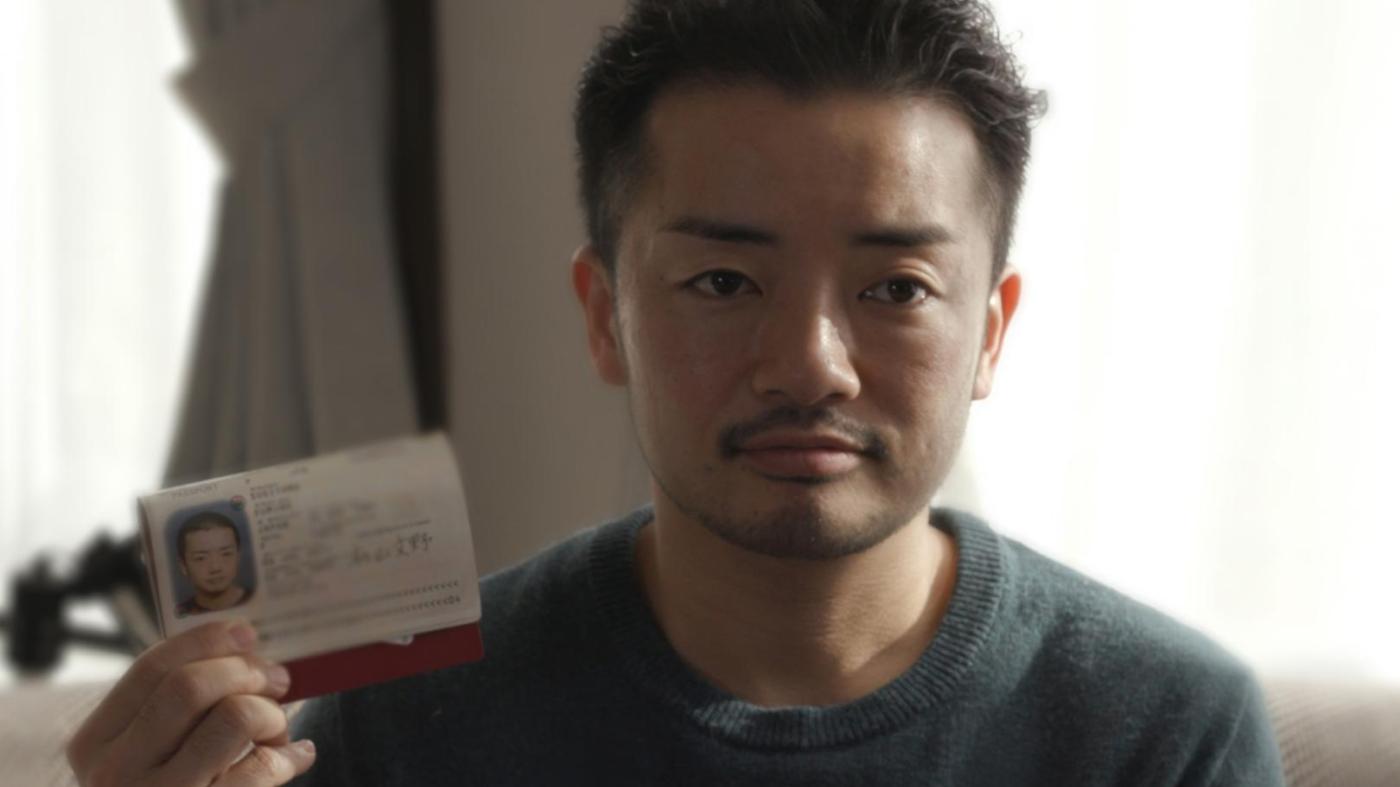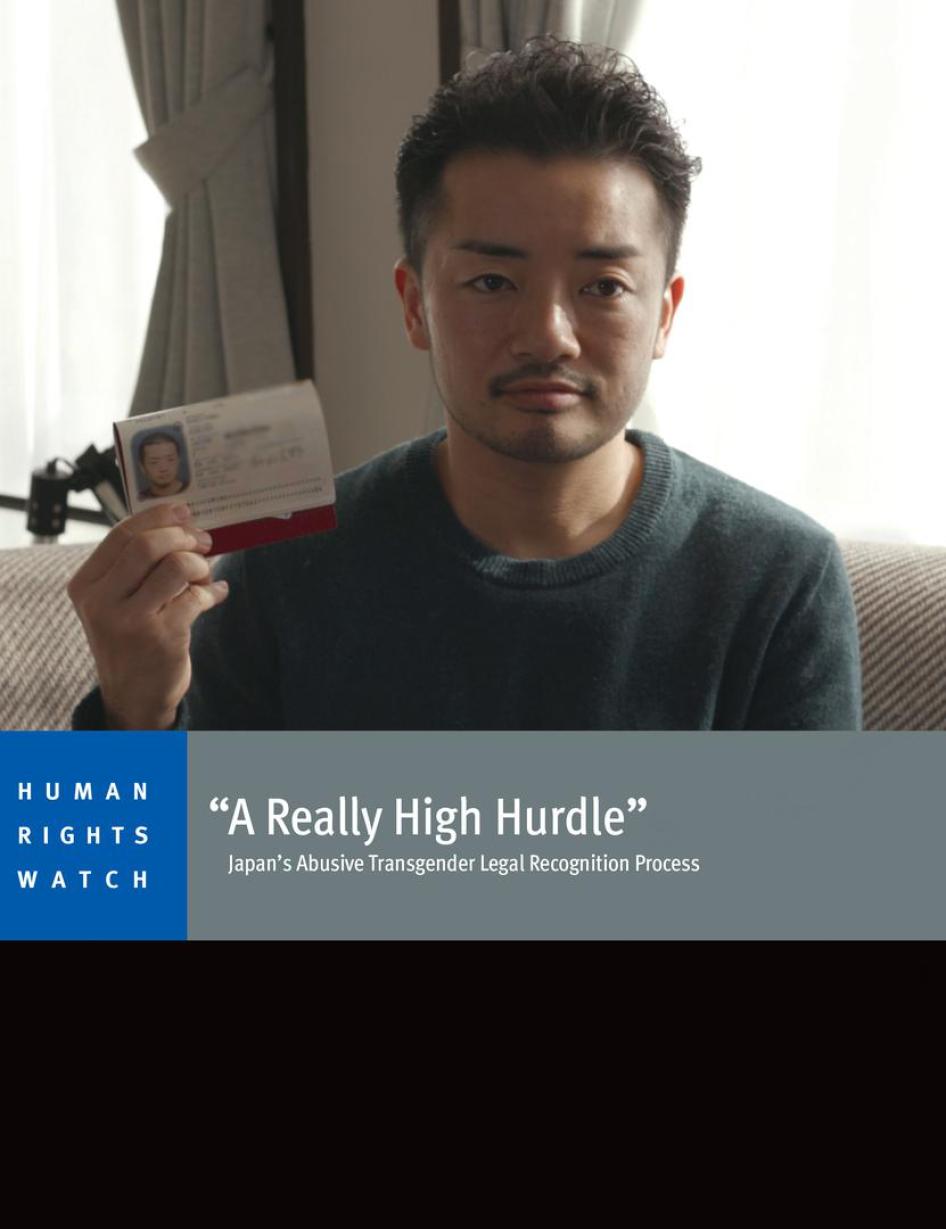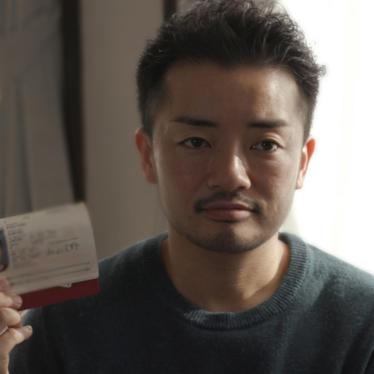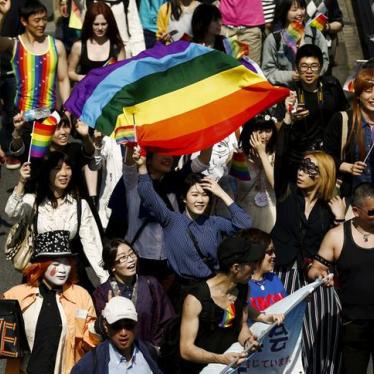What is life like for transgender people in Japan?
In Japan, the struggles for transgender people are largely invisible. Especially how hard it is to become legally recognized. In general, most people don’t know that Japanese law requires trans people to undergo medical exams and irreversible surgeries. They don’t really think about what it’s like to be compelled to do these things to be legally recognized.
The report is about the hurdles transgender people have to get over and the rights violations they experience when they try to change their legal gender. It also looks at the harm transgender people experience when they can’t change their legal gender because of the unreasonable requirements put on them by the Gender Identity Disorder and Special Cases (GID) Act.
What is the GID Act?
The GID Act was enacted about 15 years ago. It lets transgender people change their legal gender.
Isn’t that a good thing?
The problem with the act is that is very restrictive. Transgender people have to get themselves diagnosed with “gender identity disorder,” they have to submit to dangerous sterilization surgery. They also have to be 20 or older, unmarried, and not have children under the age of 20.
Don’t people want to look more like their gender identity?
Some trans people do see surgery as an important part of their transition process, but not everyone does. Regardless, many people are not comfortable having these huge decisions forced upon them, and they express resentment at the law. Some people we spoke to had conformed to these requirements and changed their legal identity or had started doing so. But other people weren’t able to do what the law required because they couldn’t afford it, or their doctors thought certain procedures wouldn’t be healthy for them. Or because they simply didn’t want to. They end up having to carry identification that says they are a different gender to how they appear and identify.
How does that affect their lives?
They face misunderstanding, humiliation, they worry that someone might be aggressive towards them. You have to use your ID when you access education, or medical care, or when you travel, or work, and they face obstacles in all of these areas. For example, when you get medical treatment, you have to show your health insurance card – which has your gender marker. If their legal gender isn’t changed, transgender people sometimes get asked a lot of very personal questions – sometimes in front of other people. They get asked if they really are the person on the card and why they look this way, not that way.
Also, because even medical professionals often lack understanding about transgender people, they have a lot of fear over whether they will be able to get necessary medical treatment, even when it is unrelated to being transgender.
What about at work?
Japan does not have anti-discrimination laws based on sexual orientation and gender identity. So, as well as the harsh, rights-violating GID Act that puts all these legal demands on them, there’s also no legal protection for them against discrimination.
People we spoke to almost universally have experienced discrimination at work or while applying for jobs. One person told me that after he was unable to get a job, he later coincidentally bumped into the company’s human resources head. They actually told him they “weren’t ready to accept transgender people” at the company.
This is one reason why transgender youth are under enormous pressure to finish their transition before entering the job market, which is normally when they graduate college at 22. Because this law only allows those who are 20 years or older to change their legal gender, they are really pressured to rush into these major surgeries in a very limited time.
One transgender man I spoke to who had the surgeries and changed his legal gender regretted what he had to go through – he really felt like he had to rush through all those procedures before going into the job market, and he didn’t have much time to think about preserving the possibility to have his own biological kids. He was struggling to come to terms with the sterilization and what happened to him. He thinks of the process as a humiliating time that violated his rights. He wanted this change and knew he was a man, but he told me that if the law didn’t exist, he would not have had the surgery to sterilize himself at that point.
You said one of the requirements was a diagnosis. What does that mean?
You have to get yourself diagnosed as having a mental health condition before you can legally transition. You have to accept that this is a “disorder” to be able to transition under the law. Internationally, “GID” doesn’t even exist anymore – the American Psychiatric Association’s Diagnostic and Statistical Manual of Mental Disorders and the World Health Organization have both removed it as a diagnosis.
In Tokyo, it is easy find clinics to get that diagnosis, but in rural areas it is very difficult. For a start, it is not even easy to get to the clinics. Then if you do find a clinic, you often have to go while you’re still on your parents’ insurance, partly because of the pressure to complete transition before you enter the job market. This forces you to come out to your parents, maybe before you’re ready. A lot of people we spoke to said their parents were either in denial or did not understand what being transgender meant. Only few were accepting from the beginning.
Even then, it can take months or sometimes more than a year to get a diagnosis. Some trans people we interviewed told us that clinics would refer patients to another hospital, and sometimes a third hospital, where they would have to go through the whole process again. It makes people very anxious about whether they will get the certificate.
What’s the justification for keeping this law active?
Just this year, the Supreme Court of Japan upheld this act, particularly the sterilization requirement. They accepted the logic of the law, which is if people changed their legal gender without being sterilized, it may confuse the legal order as well as society. Some laws will need to be changed, to address the legal confusion that can be caused by not requiring people to be sterilized. For example, if a transgender man were to get pregnant, at the moment in Japan he would only be recognized legally as a mother, not a father. But that can be changed. We change laws all the time, so to me it isn’t logical to use this argument.
What about social confusion?
That’s a more profound issue but again, the government can foresee this and do things to help fix it. The public may be confused, but that is no reason to have a law saying that transgender people who want to get legally recognized must be sterilized. Plus, is the public really confused? Polling data show that more than half of those surveyed in Japan think trans people should be legally recognized according to their gender identity and only 12 percent of Japanese people believe surgery should be required for legal gender change.
Do most people in Japan understand what it means to be transgender?
No, I don’t think so and that is causing a lot of the issues. I think the struggles of transgender people are so invisible in Japan that their everyday experiences are not known, let alone the discriminatory and abusive laws our government forces on them. Because of this, there’s very little sympathy within Japanese society, not because Japanese people are not sympathetic, but rather they just don’t know about their suffering. If there were more visibility, I do think the situation could change dramatically.
One thing that’s worth noting is that when I speak to people about these issues, they are always shocked that anyone could be forced to be sterilized.
Do you think Human Rights Watch’s report can help achieve social change?
Absolutely. What this report does is put faces to the previously hidden suffering of transgender people. We are hearing the experiences of transgender people.
For example, a transgender woman we spoke to did not have the surgery because of the risks involved. She spoke about daily humiliations she had to face just by living. She had to choose between being legally recognized or being able to have her own child. Her story is not something people in Japan would have heard of before.
I have hope in the Japanese people that once they know these things, they will act.





